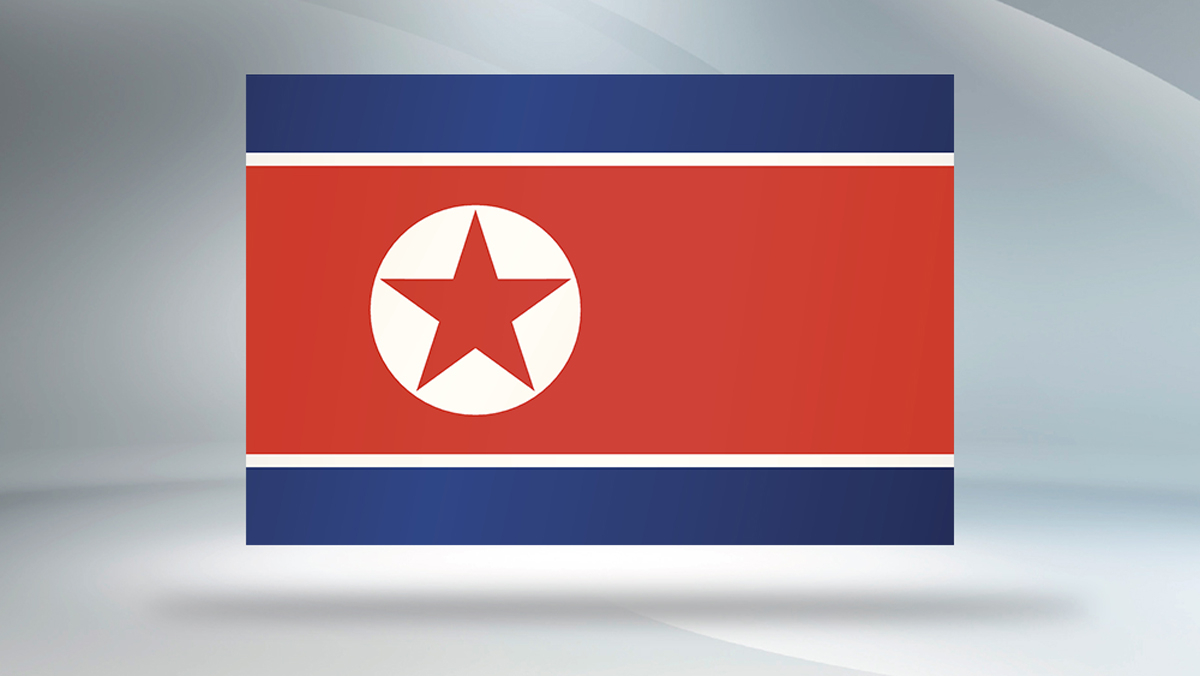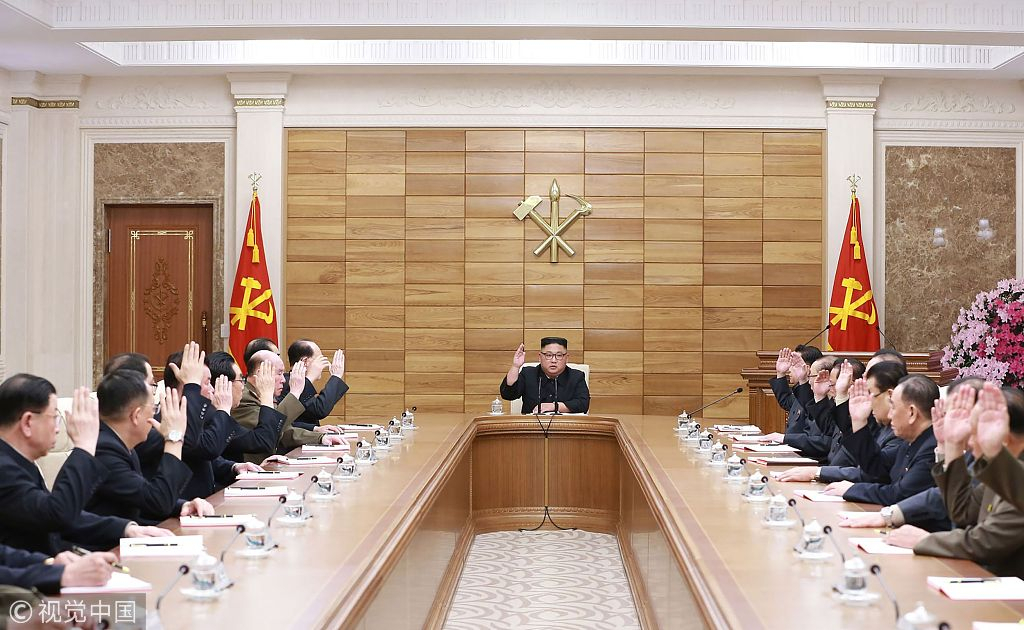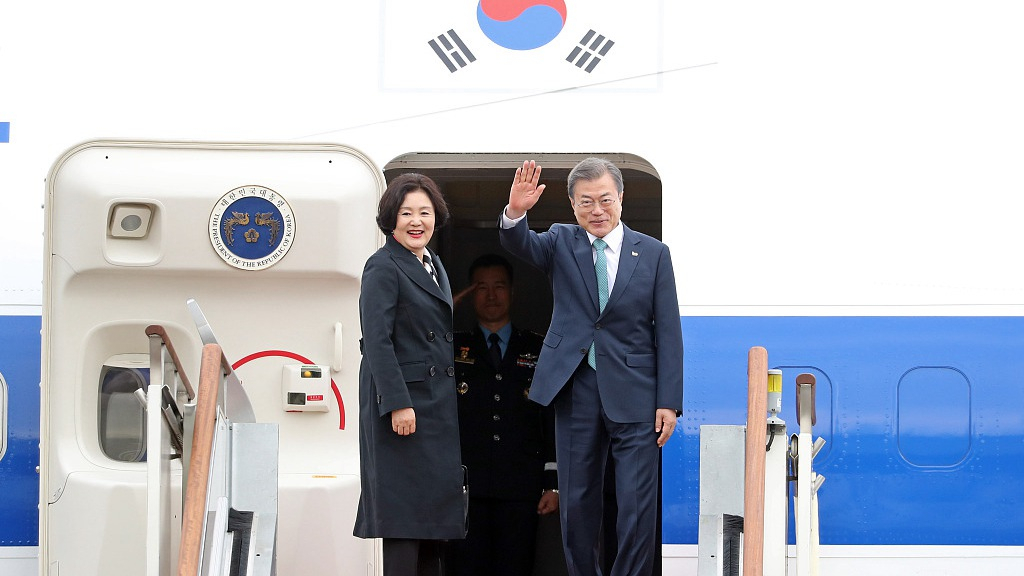
Opinion
22:26, 18-Apr-2019
What message does the DPRK's 'missile test' send?
Jeongmin Kim

Editor's note: Jeongmin Kim is a DPRK analyst based in Seoul. She previously worked at the Reuters Seoul bureau and CSIS (Center for Strategic International Studies) Korea Chair. The article reflects the author's opinion, and not necessarily the views of CGTN.
Democratic People's Republic of Korea (DPRK) state media said on Thursday that their leader Kim Jong Un "supervised and guided a test-fire of a new-type tactical guided weapon loaded with "a powerful warhead" on Wednesday. Kim has reportedly complimented scientists and workers that “there is no weapon impossible to make when they are determined to.”
Republic of Korea's (ROK) defense ministry avoided giving a detailed comment on this during its briefing, saying that they are "investigating it closely." While no missile launch was detected by the U.S. Northern Command and Strategic Command, ROK's military officials reportedly said that the weapon is likely to be a surface-to-surface precise guided missile (PGM) or tactical guided weapon with low altitude, short aviation range.
However, military analysts in Seoul also suggest possibilities that the "new" weapon might be something similar to Spike missiles or a multipurpose cruise missile as well, according to ROK's Yonhap News Agency.
This happened only a day after state media reported that Kim Jong Un went on an impromptu visit to oversee military drills by DPRK's air and anti-aircraft force in charge of defending Pyongyang. This was Kim Jong Un's first on-site inspection of the military drill after his speech at the Supreme People's Assembly.
Although many of the media reports suggest that this was to send a message to the U.S. amid a deadlock in denuclearization talks after Hanoi Summit, it seems it is targeted more primarily to the domestic audience and elites.
The test-fire was reportedly accompanied by DPRK's army officials such as Kim Su Gil, Ri Yong Gil and No Gwang Chol while Kim Jong Un was referred to like his new title, "supreme commander of the Armed forces of the DPRK" unlike in the past when he was called "supreme commander of the Korean People's Army" by state media.

DPRK leader Kim Jong Un (C) attends a meeting of the Political Bureau of the Central Committee of the Workers' Party of Korea (WPK) at the office building of the Central Committee of the WPK in Pyongyang, DPRK, April 9, 2019. /VCG Photo
DPRK leader Kim Jong Un (C) attends a meeting of the Political Bureau of the Central Committee of the Workers' Party of Korea (WPK) at the office building of the Central Committee of the WPK in Pyongyang, DPRK, April 9, 2019. /VCG Photo
KCNA's quotes of Kim Jong Un at the test-fire of new tactical guided weapon seem to be focused on combat power via conventional weapons system "of our own style," emphasizing DPRK's self-reliant defense capacity in accordance with their Party policy focusing on science technology.
Inheriting power as a successor to Kim Jong Il who gained legitimacy through his military-first policy, Kim Jong Un recently moved on to a policy line putting "economy first," moving away from his original Byeongjin policy that promoted parallel development of nuclear weapons and the economy.
Looking at this larger picture of power consolidation, Thursday's move logically makes sense as Kim Jong Un would have felt the need to assure the domestic audience and elites that their "high-tech" conventional weapons system remains strong to defend the country and that the leader is not sidelining the importance of military prowess despite deciding to give the U.S. another (or the last, with an "end-of-year" deadline) chance on nuclear negotiation after failed Hanoi Summit.
With no pictures of the weapon or the test-fire itself dispatched via state media and with a low possibility that it was a test-fire of a ballistic missile, it seems that the test was carefully calibrated not to upset Washington too much or derail denuclearization talks, while still mildly reminding the U.S. about DPRK's continued investment in military. DPRK has not tested ballistic missiles since they test-fired Hwasong-15 ICBM in November 2017.

President Moon Jae-in of the Republic of Korea (ROK) boards the plane to meet with U.S. President Donald Trump at the White House, hoping to pull the breakdown of talks between Washington and Pyongyang back from the brink, April 11, 2019. /VCG Photo
President Moon Jae-in of the Republic of Korea (ROK) boards the plane to meet with U.S. President Donald Trump at the White House, hoping to pull the breakdown of talks between Washington and Pyongyang back from the brink, April 11, 2019. /VCG Photo
Although the test was primarily targeted to the domestic audience, it is still expected that U.S. President Donald Trump's reaction to this would be important. Notably, Trump recently said that he is not in a rush and that "as long there is no testing, we're happy." It would be desirable if he interprets the test-fire not as a provocation but as a gentle reminder that DPRK is capable of seeking a "new way" if the U.S. does not come up with more persuasive terms of negotiation, despite his good personal relationship with Kim.
Although not directly mentioning the test-fire of tactical guided weapon, DPRK foreign ministry's statement via state media on the same day explicitly speaks to Trump about where the aforementioned 'persuasive terms of negotiation' can start: dropping Secretary of State Mike Pompeo as a top negotiator.
Kwon Jong Gun, a director general of the foreign ministry's Department of American Affairs said that Pompeo engaging in the talks again will make the talks "lousy" once again. "Even in the case of a possible resumption of the dialogue with the U.S., I wish our dialogue counterpart would be not Pompeo but another person who is more careful and mature in communicating with us," Kwon said.
The U.S. can take this as an opportunity and empower Biegun instead, who is set to visit Moscow this week to discuss DPRK denuclearization. It was recently reported that Kremlin is about to offer their support in easing UN sanctions against DPRK. With Kim Chang Son also spotted in Vladivostok, likely preparing for Kim Jong Un's upcoming first summit with Putin, the U.S. gesturing to show their willingness to continue the working-level dialogue through more flexible counterparts would be a timely move with no serious risk.
(If you want to contribute and have specific expertise, please contact us at opinions@cgtn.com.)

SITEMAP
Copyright © 2018 CGTN. Beijing ICP prepared NO.16065310-3
Copyright © 2018 CGTN. Beijing ICP prepared NO.16065310-3